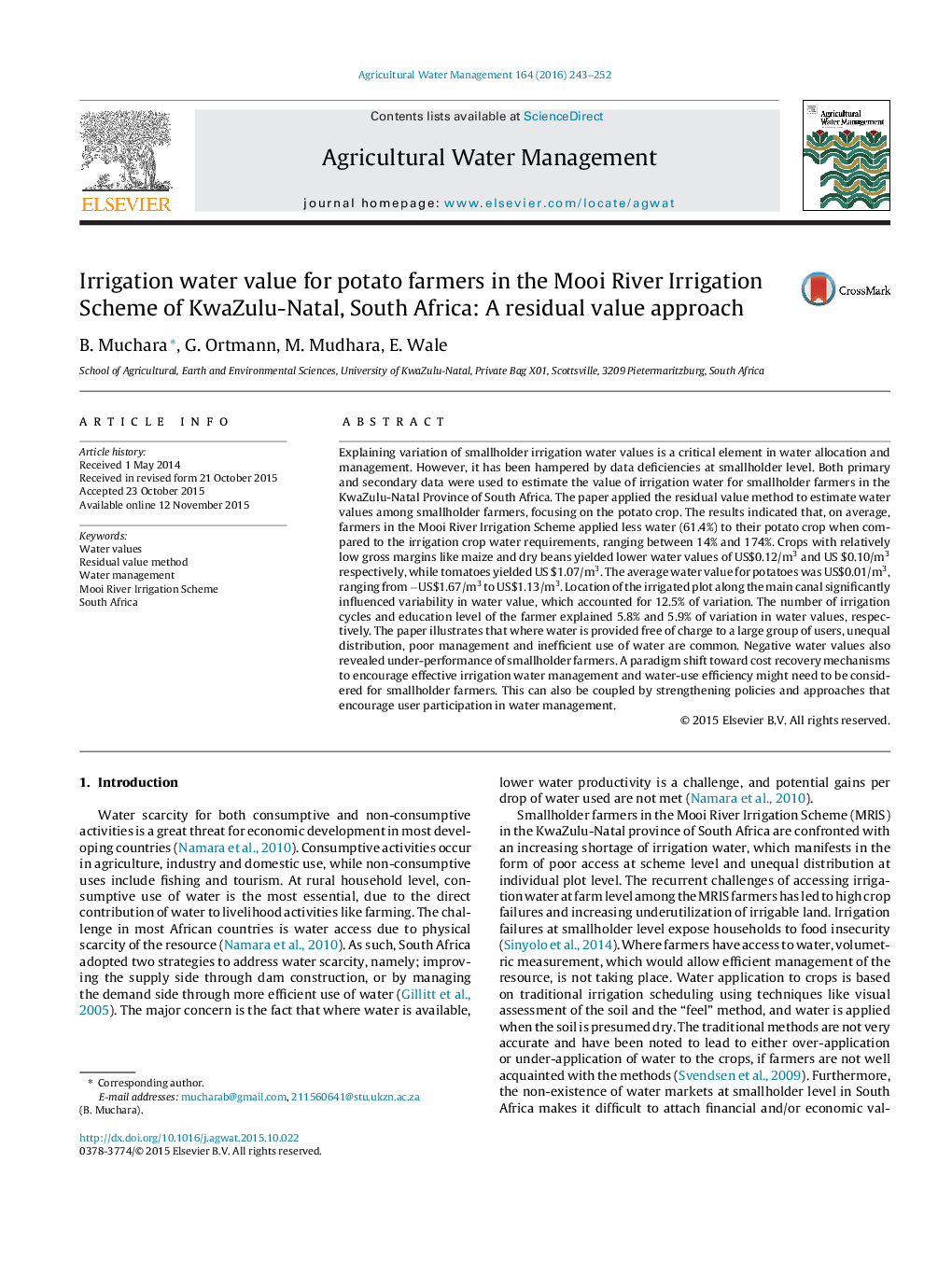| کد مقاله | کد نشریه | سال انتشار | مقاله انگلیسی | نسخه تمام متن |
|---|---|---|---|---|
| 4478378 | 1316369 | 2016 | 10 صفحه PDF | دانلود رایگان |
• The residual value approach was applied to estimate agricultural water values.
• Variation is due to farmer, resource and production-related factors.
• Study revealed under-performance of government-supported smallholders.
• Cost recovery mechanisms for irrigation infrastructure may not be feasible in the short run.
• More inclusive management approaches are required at smallholder level.
Explaining variation of smallholder irrigation water values is a critical element in water allocation and management. However, it has been hampered by data deficiencies at smallholder level. Both primary and secondary data were used to estimate the value of irrigation water for smallholder farmers in the KwaZulu-Natal Province of South Africa. The paper applied the residual value method to estimate water values among smallholder farmers, focusing on the potato crop. The results indicated that, on average, farmers in the Mooi River Irrigation Scheme applied less water (61.4%) to their potato crop when compared to the irrigation crop water requirements, ranging between 14% and 174%. Crops with relatively low gross margins like maize and dry beans yielded lower water values of US$0.12/m3 and US $0.10/m3 respectively, while tomatoes yielded US $1.07/m3. The average water value for potatoes was US$0.01/m3, ranging from −US$1.67/m3 to US$1.13/m3. Location of the irrigated plot along the main canal significantly influenced variability in water value, which accounted for 12.5% of variation. The number of irrigation cycles and education level of the farmer explained 5.8% and 5.9% of variation in water values, respectively. The paper illustrates that where water is provided free of charge to a large group of users, unequal distribution, poor management and inefficient use of water are common. Negative water values also revealed under-performance of smallholder farmers. A paradigm shift toward cost recovery mechanisms to encourage effective irrigation water management and water-use efficiency might need to be considered for smallholder farmers. This can also be coupled by strengthening policies and approaches that encourage user participation in water management.
Journal: Agricultural Water Management - Volume 164, Part 2, 31 January 2016, Pages 243–252
